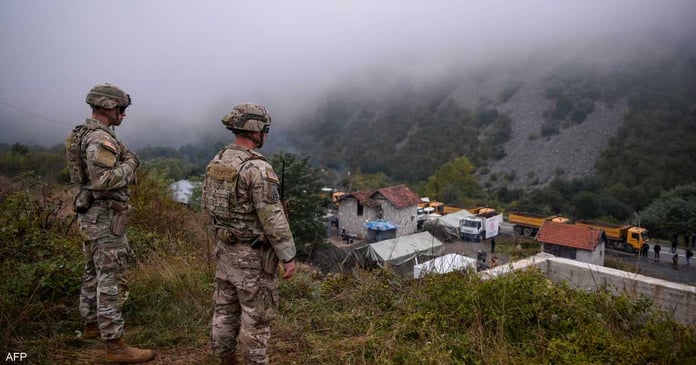Clashes took place on Friday between the Kosovar police and demonstrators opposed to the mayors of Albanian origin.
The clashes prompted Serbia to put its army on high alert and move its units to areas near the border.
“We urge Kosovo institutions to immediately de-escalate and call on all parties to resolve the situation through dialogue,” NATO spokeswoman Oana Lungescu said in a Twitter post.
She added that the NATO-led peacekeeping force in Kosovo, 3,800 strong, would remain vigilant.
For his part, Kosovar Prime Minister Albin Kurti defended the police escort of new mayors.
He wrote on Twitter: “It is the right of those elected in democratic elections to perform their duties without threats or intimidation, and it is also the right of citizens to be served by those elected.”
And the Serbian Security Council announced on Saturday that the country’s army remains on high alert.
“Due to the brutal use of force by (Kosovo Prime Minister) Albin Kurti and his structures against the Serbian people in Kosovo and Metohija, the Serbian Armed Forces remain on high alert,” a statement read. by the Council at the end of its meeting on Saturday. , reported by the Russian agency Novosti.
And boycotted around 50,000 Serbs living in four municipalities in northern Kosovo, including Zvecan, elections held on April 23 to protest the failure to meet their demands for greater autonomy. This represents another setback for a peace agreement reached in March between Kosovo and Serbia.
On Friday, US Secretary of State Anthony Blinken criticized the Kurti government for its actions in the northern region, saying it “unnecessarily escalated tensions, undermined our efforts to help normalize relations between Kosovo and Serbia. and will affect our bilateral relations with Kosovo.”
Almost ten years after the end of the war, Serbs living in the northern region of Kosovo do not accept the country’s declaration of independence from Serbia issued in 2008 and still see that their capital is Belgrade .
Albanians make up over 90% of Kosovo’s population, while Serbs form the majority only in the northern region.
Read the Latest World News Today on The Eastern Herald.


